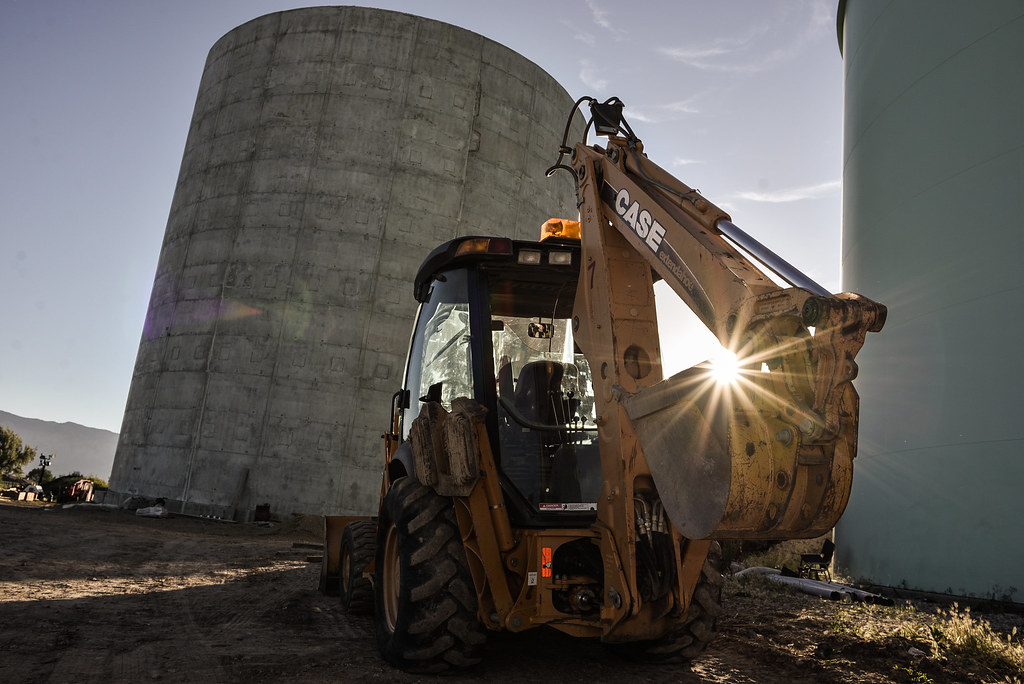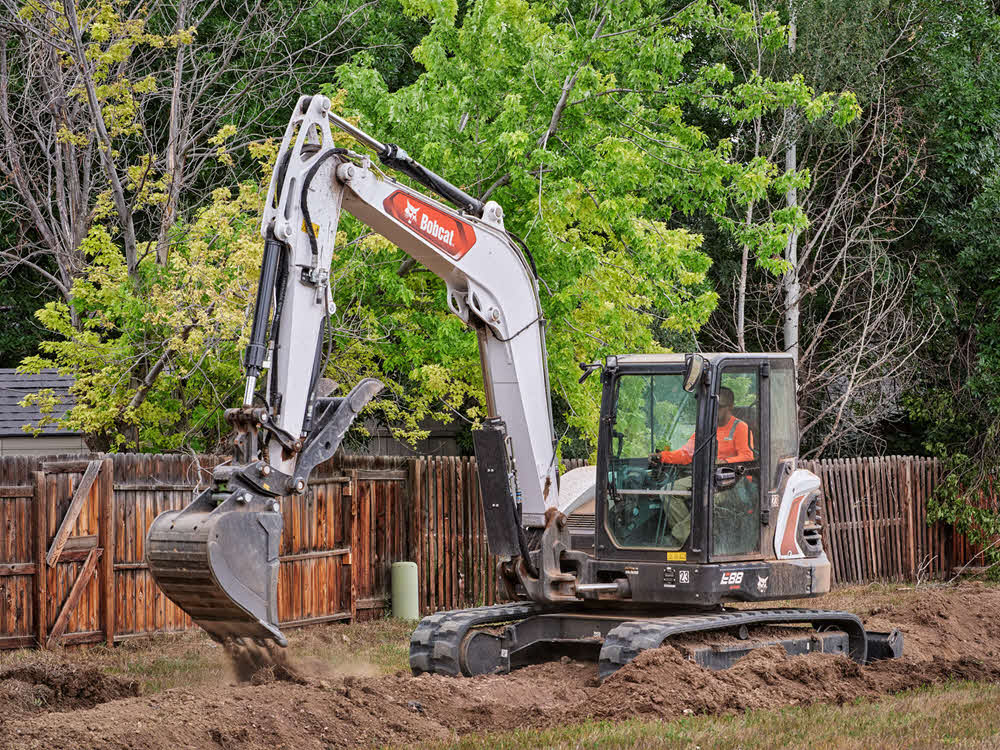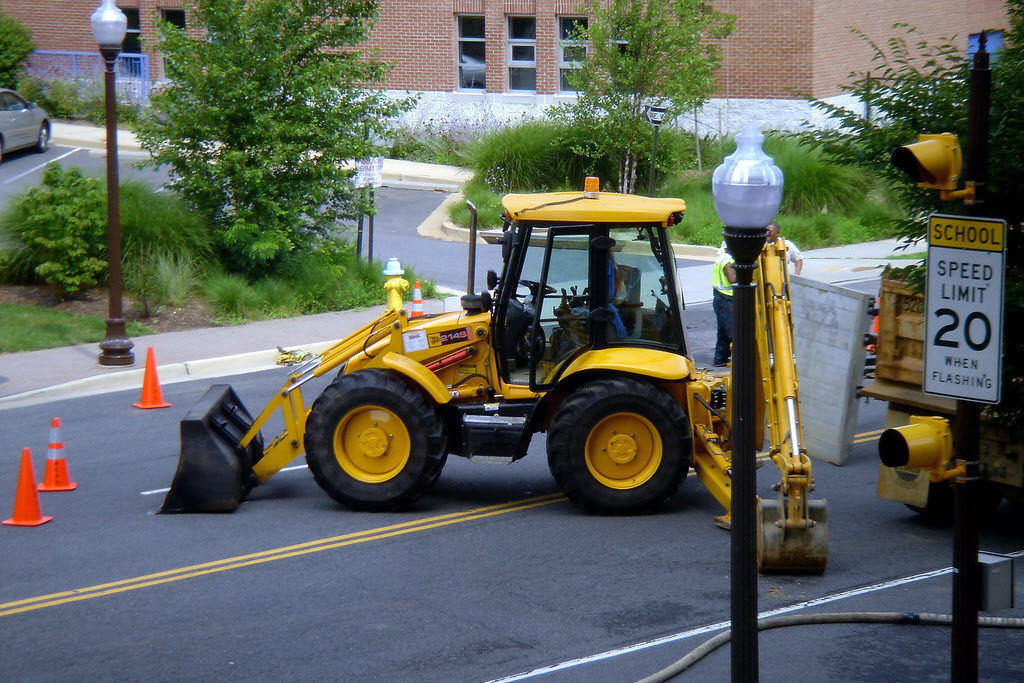Backhoe Servicesin Romeo MI
Backhoe Services for Quick and Precise Excavation
We Are Locally Owned & Operated For Over 37 Years
Contact Us Today!
We Serve Businesses In And Around The Following Cities:
About Backhoe Services
Introduction
Unearthing the heart of commercial property enhancement lies an indispensable service – Backhoe Service. This guide delves deep into the crux of this pivotal service in Romeo, exploring the benefits and processes while shedding light on real-world applications. For any business owner striving to comprehend and capitalize on this service, this guide is your companion, leading you to make the most informed decisions. We will navigate together through the labyrinth of backhoe services, synonymous with the seamless blend of efficiency, improvement, and astute commercial property management.
Unveiling Backhoe Services
Backhoe Service is commonly defined as the usage of a backhoe, a piece of heavy machinery consisting of a digging bucket on the end of a two-part articulated arm. Making the invisible visible, highly skilled backhoe contractors fervently trudge through the soil, ensuring your commercial property foundations are strong, your utilities are efficaciously installed, and your existing structures are safely demolished.
Navigating through the sea of backhoe companies near me can indeed be overwhelming; therefore, selecting a reputed professional like D&J Contracting ensures that your project is executed flawlessly, thereby yielding optimum results.
Benefits of Backhoe Services
Employing backhoe services is akin to constructing a strong backbone for your commercial property. Each stroke, each dig, each move conjures unfathomable benefits for your premises. A prime advantage is the capability to perform a broad variety of tasks such as digging holes, installing utilities, moving heavy loads, and clearing rubble post-demolition. Therefore, from the initial ground-breaking to the final cleaning, backhoe services remain your steadfast ally.
The second significant benefit lies in the versatility of backhoes. They are nothing short of a Swiss army knife, proficiently handling different tasks with remarkable precision, including excavation, trenching, material handling, back-filling, among others. Hence, hiring an affordable backhoe service is indeed an investment with comprehensive returns.
Real-World Applications of Backhoe Service
Now that we have unearthed the potential benefits, it’s time to envision real-world applications to comprehend the scope of backhoe service. A common sight in Romeo are backhoe contractors deftly handling large commercial projects such as shopping malls, corporate parks, and even residential backhoe services for multi-dwelling buildings. Within these premises, backhoes play a pivotal role in ground excavation for utilities installation, foundations, and landscaping. Not to mention their efficiency in clearing debris post-demolition, aiding in efficient site clean-up and preparation for the next stage.
For instance, take any bustling shopping complex in Romeo, and you will witness the role of a backhoe service in shaping its existence. From excavations that paved the way for the foundation to the installation of utilities, expert backhoe operators have played a significant role in shaping the city’s commercial landscape.
The Process of a Typical Backhoe Service
A typical backhoe service commences with a thorough analysis of your project needs, followed by meticulous planning. This involves understanding the land’s contour, soil type, and the project requirements. Following the planning stage is the deployment of the backhoe. D&J Contracting, one of the notable backhoe companies near me, ensures adherence to the highest safety norms during the process.
The ability of a backhoe contractor to manoeuver this versatile piece of equipment effectively decides the efficiency and safety of the project. Once the task is complete, a specialised crew clears up the site, ensuring it is ready for the next stage of construction. Therefore, this service is not merely about digging, but rather achieving your project goals, conserving resources and maintaining safety.
The Final Reflection
To surmise, the intrinsic connection between commercial property development and backhoe services cannot be underestimated. From the laying of foundations to demolitions, from utility installations to site clean-ups, the role of a backhoe service is indeed manifold. Various real-world applications underline its importance in landscape transformation; commercial establishments in Romeo are standing testimonials to efficient backhoe services.
Harnessing the potential of backhoe service by investing in affordable, reliable, and professional agencies like D&J Contracting is a strategic foresight. It aligns your commercial property towards growth and development, preserves resources and ensures the execution of a safe, well-planned project. So, the next time you envision a construction project, consider the prudent choice – backhoe service, your partner to a solid foundation.
Backhoe Services Gallery


Call Us Today to receive your Free Quote for
Backhoe Service in Romeo
Serving: Romeo, Michigan

About Romeo, Michigan
A settlement here was originally occupied by the indigenous Chippewa (Ojibwe), an Algonquian-speaking people who were part of a large language family of tribes extending to the Atlantic Coast. Those tribes around the Great Lakes are thought to have migrated to this area by the 12th century.
The early European-American settlers in this area referred to the Chippewa settlement as “Indian Village”. In the 1820s and 1830s more migrant European-American families began to settle in the area, building homes and establishing businesses. They renamed the community “Hoxie’s Settlement”, after a man who opened an inn on Main Street. In 1839, Hoxie’s Settlement became incorporated and was renamed as the village of Romeo. The name was suggested by the wife of local merchant Nathaniel Taylor because it was “short, musical, classical and uncommon.” Romeo celebrated its 175th anniversary on March 9, 2013.
Romeo once served as a trading center for the timber industry, and had many mills processing lumber from the region. Many wealthy timber families resided there. Dozens of stately Victorian mansions survive. Romeo is distinct in the area for having a fairly robust, traditional downtown, which has never suffered a major fire. Because of this, some stores and restaurants downtown have features such as original tin ceilings from the Civil War. In the early 20th century, Romeo was the site of an early business devoted to the new automobile industry: the Detroit Auto Vehicle Company operated here from 1904 until 1908.
The village is in northwestern Macomb County, situated at the southeast corner of Bruce Township, with a portion extending south into Washington Township. Armada Township is adjacent to the east and Ray Township to the southeast. M-53 passes through the east side of the village, leading north 16 miles (26 km) to Imlay City and south 30 miles (48 km) to the eastern side of Detroit.
According to the United States Census Bureau, the village of Romeo has a total area of 2.05 square miles (5.31 km), of which 0.002 square miles (0.005 km), or 0.10%, are water. East Pond Creek crosses the easternmost part of the village, flowing east to the North Branch of the Clinton River, part of the Lake St. Clair watershed.
| Census | Pop. | Note | %± |
|---|---|---|---|
| 1850 | 330 | — | |
| 1880 | 1,629 | — | |
| 1890 | 1,637 | 0.5% | |
| 1900 | 1,580 | −3.5% | |
| 1910 | 1,787 | 13.1% | |
| 1920 | 2,102 | 17.6% | |
| 1930 | 2,283 | 8.6% | |
| 1940 | 2,627 | 15.1% | |
| 1950 | 2,985 | 13.6% | |
| 1960 | 3,327 | 11.5% | |
| 1970 | 4,012 | 20.6% | |
| 1980 | 3,509 | −12.5% | |
| 1990 | 3,520 | 0.3% | |
| 2000 | 3,721 | 5.7% | |
| 2010 | 3,596 | −3.4% | |
| 2020 | 3,767 | 4.8% | |
| U.S. Decennial Census | |||
As of the census of 2010, there were 3,596 people, 1,501 households, and 979 families residing in the village. The population density was 1,780.2 inhabitants per square mile (687.3/km). There were 1,659 housing units at an average density of 821.3 per square mile (317.1/km). The racial makeup of the village was 91.9% White, 3.8% African American, 0.2% Native American, 0.5% Asian, 1.1% from other races, and 2.6% from two or more races. Hispanic or Latino people of any race were 5.7% of the population.
There were 1,501 households, of which 32.2% had children under the age of 18 living with them, 46.2% were married couples living together, 14.9% had a female householder with no husband present, 4.1% had a male householder with no wife present, and 34.8% were non-families. 30.8% of all households were made up of individuals, and 13.6% had someone living alone who was 65 years of age or older. The average household size was 2.36 and the average family size was 2.96.
The median age in the village was 40.9 years. 23.5% of residents were under the age of 18; 7.7% were between the ages of 18 and 24; 24.1% were from 25 to 44; 29.4% were from 45 to 64; and 15.3% were 65 years of age or older. The gender makeup of the village was 46.4% male and 53.6% female.
As of the census of 2000, there were 3,721 people, 1,528 households, and 993 families residing in the village. The population density was 1,842.8 inhabitants per square mile (711.5/km). There were 1,605 housing units at an average density of 794.9 per square mile (306.9/km). The racial makeup of the village was 92.66% White, 4.35% African American, 0.16% Native American, 0.40% Asian, 0.11% Pacific Islander, 0.67% from other races, and 1.64% from two or more races. Hispanic or Latino people of any race were 2.74% of the population.
There were 1,528 households, out of which 33.3% had children under the age of 18 living with them, 48.2% were married couples living together, 13.5% had a female householder with no husband present, and 35.0% were non-families. 31.3% of all households were made up of individuals, and 13.2% had someone living alone who was 65 years of age or older. The average household size was 2.40 and the average family size was 3.04.
In the village, the population was spread out, with 26.1% under the age of 18, 8.2% from 18 to 24, 30.1% from 25 to 44, 21.4% from 45 to 64, and 14.2% who were 65 years of age or older. The median age was 36 years. For every 100 females, there were 87.2 males. For every 100 females age 18 and over, there were 82.5 males.
The median income for a household in the village was $48,015, and the median income for a family was $60,179. Males had a median income of $51,875 versus $27,696 for females. The per capita income for the village was $22,588. About 3.2% of families and 3.9% of the population were below the poverty line, including 6.5% of those under age 18 and 3.9% of those age 65 or over.
The government of the village of Romeo consists of elected and appointed officials. The elected officials include six council members, one president, treasurer and clerk. The appointed officials include the Chief of Police, Department of Public Works Director, and Village Administrator. Currently, the elected clerk also holds the appointed position of Village Administrator. The day-to-day operations of the village are handled by the Clerk/Administrator.
Since the turn of the 21st century, Romeo has worked to upgrade its infrastructure. It has improved the streetscape on Van Dyke Avenue, the main road through the village, and installed a new water tower. It had earlier established one of the few wastewater treatment plants in the region. While most of the metropolitan region receives water and sewage service from the City of Detroit, Romeo independently sustains its own supply of water and manages treatment of village sewage. This was especially valuable during the blackout that occurred throughout the entire northeastern United States on August 14, 2003. Romeo was one of the few areas in the Detroit metropolitan area to have clean running water. More recent infrastructure improvements include a complete renovation of the village water system, and replacement of all the sidewalks throughout the village.
Call Us Today to receive your Free Quote for
Backhoe Service in Romeo
Related Services in Romeo, Michigan
We Serve Businesses In The Following Zip Codes:
48007, 48015, 48021, 48026, 48035, 48036, 48038, 48042, 48043, 48044, 48045, 48046, 48047, 48048, 48050, 48051, 48066, 48071, 48080, 48081, 48082, 48083, 48084, 48085, 48088, 48089, 48090, 48091, 48092, 48093, 48098, 48099, 48225, 48230, 48236, 48310, 48311, 48312, 48313, 48314, 48315, 48316, 48317, 48318, 48397